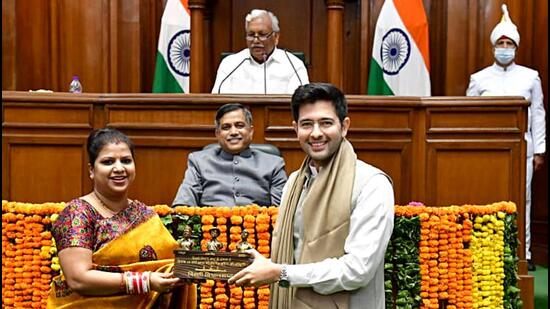
The AAP has expressed its support for Khan, emphasizing that the arrest appears to be politically motivated. Party leaders argue that Khan’s ongoing work in his constituency and his political activities have made him a target for intimidation by central agencies. This incident highlights the broader concerns among political factions regarding the use of investigative agencies as tools for political warfare.
Khan's legal team contends that the ED failed to follow due process, arguing that he was not provided adequate notice or an opportunity to present his case prior to the arrest. This situation is compounded by a perceived lack of transparency in the ED's operations, which some critics argue undermines the agency's credibility.
Khan's involvement in the case stems from an ongoing probe into a network allegedly misusing government funds meant for social initiatives. According to ED sources, funds from the Delhi Waqf Board, intended for educational and welfare programs, were allegedly siphoned off for personal use. The investigation has raised questions about the management of public funds and the accountability of political figures in financial matters.
As the case unfolds, it is expected to draw further scrutiny from various quarters, including civil society organizations and political analysts who are keen to monitor the implications of such actions on governance and transparency in India. The ED's approach to this investigation will be pivotal, not only for the outcomes related to Khan but also for the ongoing debate about the role of law enforcement in political processes.
Public reactions to the situation have been mixed. Supporters of the AAP have rallied around Khan, organizing protests to decry what they describe as the misuse of power by the central government. On the other hand, opponents argue that the investigation is necessary to ensure accountability among public officials. This clash of perspectives reflects the polarized nature of Indian politics, particularly in the context of high-profile corruption cases.
Khan’s arrest has sparked discussions on social media platforms, with hashtags related to the case trending among supporters and critics alike. The public discourse has illuminated the tension between law enforcement and political accountability, with many calling for a reform of the mechanisms through which such investigations are conducted.
Legal experts anticipate that the Delhi High Court's ruling on this matter could set a significant precedent for future cases involving political figures and corruption allegations. The court's decision will likely address not only the specifics of Khan’s arrest but also broader legal standards governing the actions of investigative agencies in politically charged environments.
As the ED prepares to respond to the High Court's notice, the agency's actions will be under intense scrutiny. Observers will be watching closely for any signs of bias or overreach in its investigative practices, especially in light of allegations that similar cases have been pursued selectively against political opponents.
In the context of ongoing political tensions, this case is emblematic of the challenges faced by the current government in balancing the enforcement of law and the perceptions of justice. The implications for governance and public trust are profound, as the lines between political maneuvering and legal accountability continue to blur.
